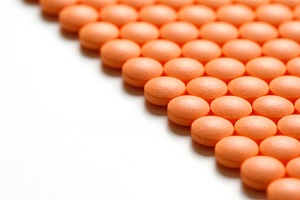Amitiza

Generic name: Lubiprostone
Brand name(s): Amitiza, Sucampo
Preparation(s): capsule
Uses for IBS
Amitiza is a cathartic/ laxative and is used to stimulate the movement of food through the gastrointestinal tract. It was recently approved (April 30, 2008) by the FDA for the treatment of constipation-predominant IBS. It is the only FDA-approved medication that is available in the U.S. to treat IBS with constipation. Amitiza works by increasing the secretion of intestinal fluid into the gut lumen (intestines). This softens the fecal content, increasing intestinal motility and which makes passage of the stool easier, thus, relieving symptoms associated with chronic constipation. Several studies have shown Amitiza to be clearly better than placebo in evacuating the bowels and decreasing constipation associated with IBS especially in women 18 years of age or older. The effectiveness of Amitiza in men has not been definitively demonstrated. It is administered orally by capsule. It is a very useful drug with few drug-drug interactions and is primarily eliminated through the urine.
Contraindications
Amitiza should not be taken if there is known hypersensitivity to lubiprostone. It should also be avoided in people with a history of gastrointestinal obstruction. The safety of Amitiza in pregnancy has not been demonstrated, but studies in animal models show there is a potential for fetal loss. Women of child-bearing age should first undergo a pregnancy test before starting the medication. Nursing mothers should take precaution if taking Amitiza. More studies are necessary to see if it can be passed to the infant and to determine its effect on the infant after ingestion.
Adverse Effects
The most common adverse effects reported for Amitiza were gastrointestinal and nervous system disorders, including abdominal discomfort with pain and cramps, diarrhea, nausea, headache, and dizziness. Less common adverse effects include anxiety, back pain, depression, edema, and shortness of breath. Rare adverse effects include chest pain, skin rash, and dry mouth.
